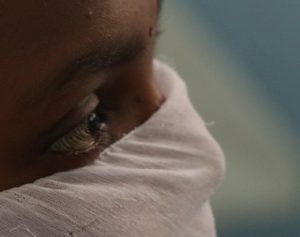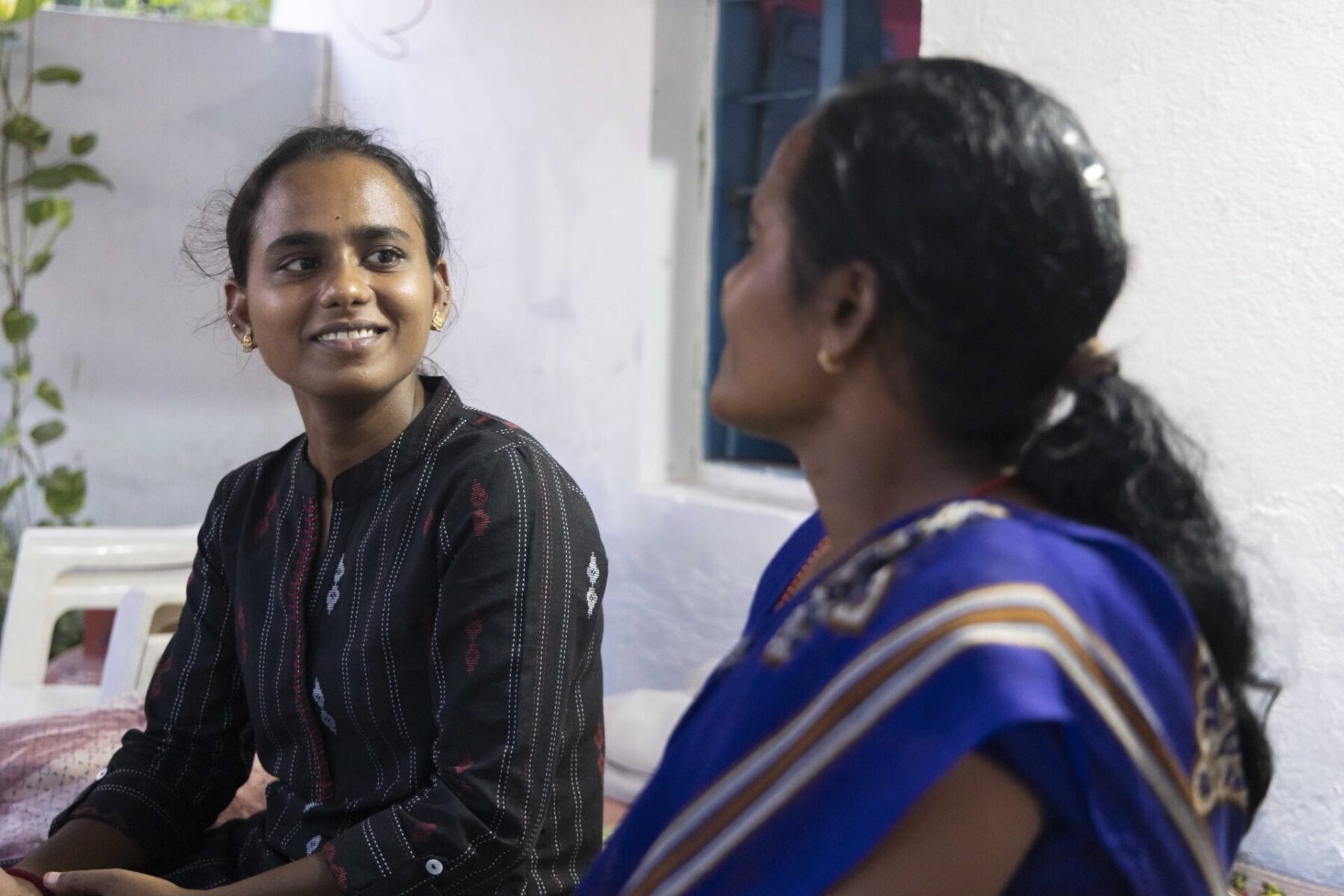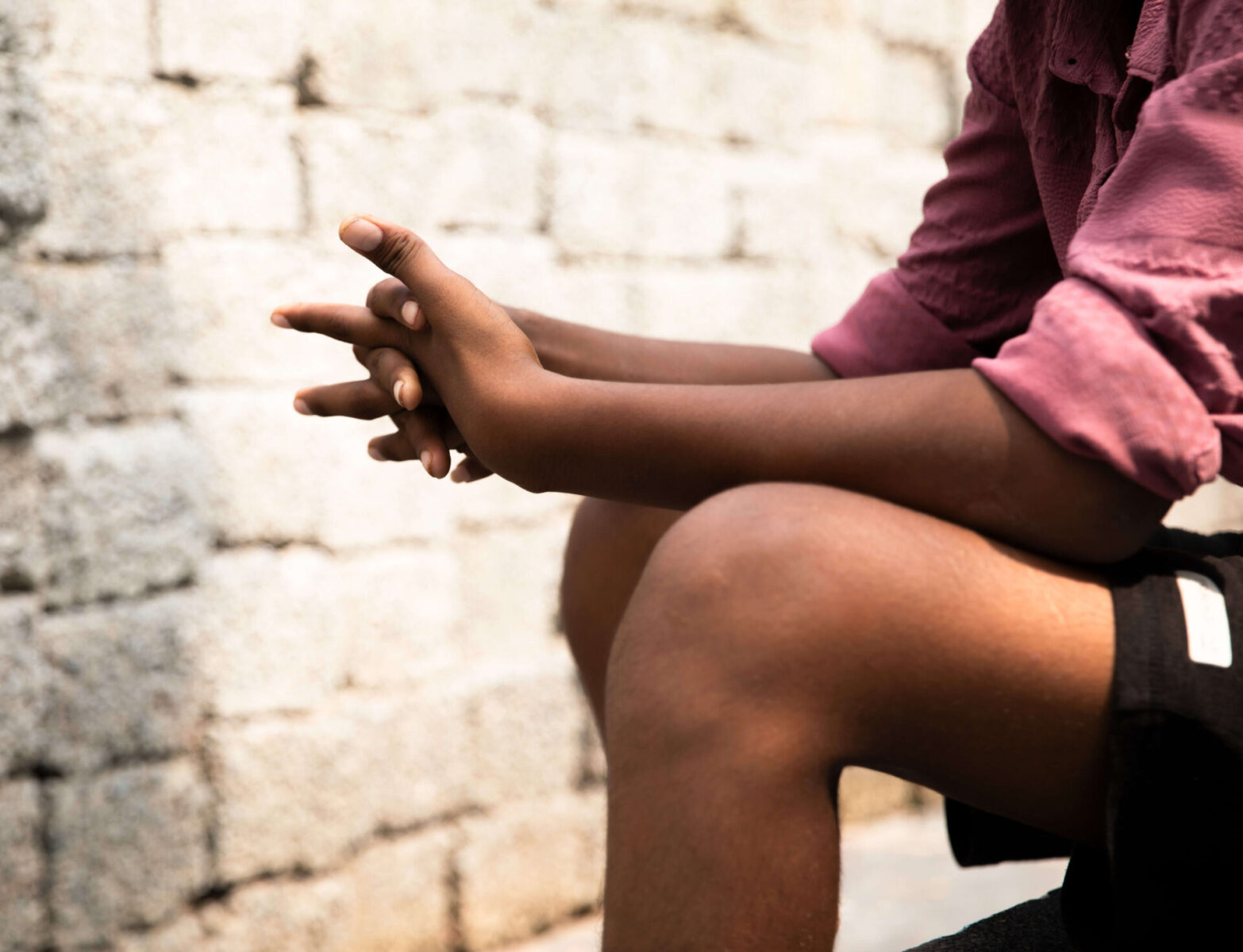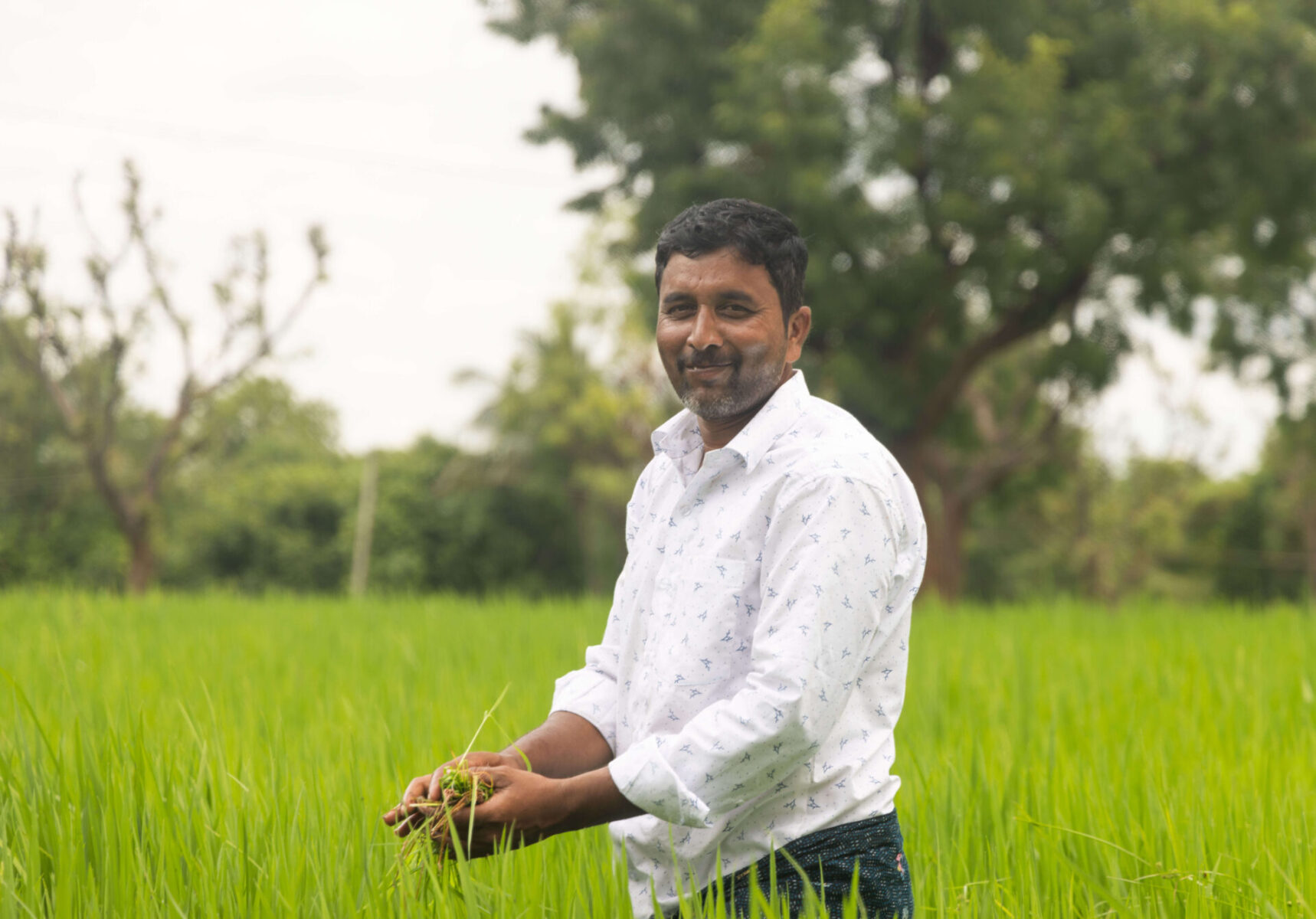One year ago India went through one of the biggest and toughest lockdowns in the world. COVID-19, restrictions, fear and uncertainty were the only topics that people worldwide were talking and thinking about. That was only the beginning of a time that changed the world, probably forever.
Government hospitals and clinics as well as centres such as RDT Bathalapalli Hospital were transformed into COVID-19 Healthcare Centres while many private institutions decided to shut down due to the uncertainty of the pandemic. Transport facilities were reduced to a minimum and people were asked to remain at home. The whole world came to a standstill, while the COVID-19 virus seemed to be the only one able to move freely.
In the midst of this extreme situation, the team at RDT’s Hospital for Infectious Diseases (HID), also known as Care and Support Centre, comprising of 4 doctors, 32 nurses, 12 social workers and 30 outreach workers were working tirelessly to ensure that their patients – persons living with HIV and/or TB – could access their lifesaving treatments despite of the lockdown.
“Of course we were afraid, who was not at that time? But we had a clear goal: Ensuring access to medication for our patients and provide them with the required psychological support. Our capacity to respond would determine their chances of survival”, explains Radha, Social Workers Coordinator at HID.
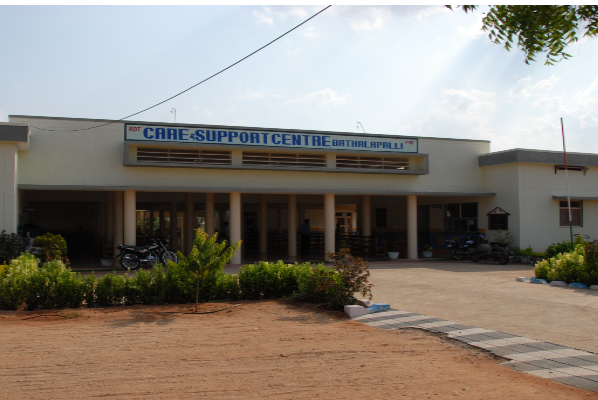
Locate, inform, deliver and support
The first step was to update the list of patients under ART treatment, locate them and then co-ordinate with the outreach workers to deliver the required drugs to them for at least two months. If patients could not go to the hospital, the hospital would go to them. “Some patients moved to the villages to stay with their relatives, looking for safety and that made our task difficult”, adds Radha.
That was precisely Amaravati’s* decision. Living with HIV and at the early stages of her pregnancy when the lockdown commenced, she and her husband decided to abandon the city for the quietness and security of their in-laws’ village. “We watched some videos of people who were evicted from their houses for having COVID-19, what if the same happened to us? We are already carrying the burden of HIV’s stigma…”, she explains during her latest health check-up at HID.
Amaravati confesses that even before this pandemic she has been denied medical treatment for being HIV positive. “If I would contract COVID-19 too what would have happened to me?” she wonders. Shortly after moving in with her in-laws they got in touch with one of RDT’s outreach worker. “She brought the necessary drugs for both of us and gave us some advice too”, she remembers. “I know that the drugs are important but I also truly appreciated all the advice and counselling that she gave us about where to go for my pregnancy checkups, the diet…” she adds. Few months later, Amaravati’s son was born healthy and strong in RDT Bathalapalli Hospital.
The access to these villages itself was also a challenge not always easy to overcome
Madhavi*, outreach worker for HID Hospitals, remembers it. “I was threatened when trying to reach some of these villages. I especially recall one village where the neighbors barricaded the roads to prevent anyone from either leaving or entering. When I tried to get into this village, many people reproached me. They kept questioning my intentions and threatened me but I would not tell them the truth of my visit as I would have exposed the patient. Discretion is the pillar of my work”.
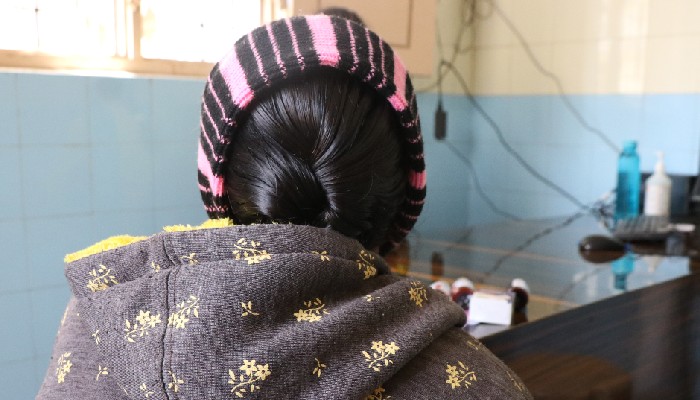
Madhavi´s experience is not an isolated case, as many of the other outreach workers interviewed also claimed to have been through similar situations from March to May last year while trying to do their work. Being tactful and creative, along with the support of local authorities and police officers were essential to ensure that the team of outreach workers could do their job.
“As the restrictions were lifted we were able to discreetly meet the patients in markets, bus stations, small roads…I remembered that on one occasion I wrapped the medicines in gift paper and then gave it to the village milkman to deliver the package”, Lalitha* another outreach worker, explains.
The emotional cost of living with the stigma in times of pandemic
The emotional stress experienced in recent months by both healthcare personnel and patients is still difficult to gauge.
Mina*, another outreach worker, decides to finally break the silence and share her experience during a monthly meeting: “I got COVID-19 during the first months of the pandemic and it was one of the worst experiences I had to go through,” she recalls. “My neighbors used to see me going for work every morning, so when they found out that I contracted covid they kept saying that it was my fault because I had not stayed at home and that I had put my family in danger on purpose.”
What Mina´s neighbors still do not know is that every time she stepped out of the house she was ensuring that people like Lakshmi* and her 7 year old son could have access to the lifesaving treatment and support.
“COVID-19 does not scare me”, explains Lakshmi who along with her son has been under ARV therapy for the last four years. They both got to know that they were infected with HIV a few days after her husband had passed away due to AIDS. “The ghost of death has been haunting me since then”, she remarks.

“Diseases can be treated with medicines but society’s discrimination towards persons living with HIV or towards those who had COVID-19 or who cared for COVID-19 patients… For that there is neither drug nor treatment”, she declares. “My son is my life, and I will do absolutely anything to get him what he needs”.
Surge in the number of infections
Despite the efforts of the Hospital for Infectious Diseases’ professional team to minimize the negative impact of the lockdown on their patients’ situation, today, one year later, coping with the hash consequences is part of their daily work.
“Nowadays we are witnessing an increase in the number of HIV and TB patients coming to our hospital with infections and complications as a result of discontinuing their treatments, especially from other districts where our outreach workers could not reach¨, explains Dr. Udayakanthapanda Kotari, who has been working as a medical officer in HID for the past three years.
¨HID was always open, we never closed or sent anybody away, but due to the restrictions very few patients came to us and only those from the neighboring mandals could reach us. People were scared to leave the house, more so to visit a hospital”, he adds.
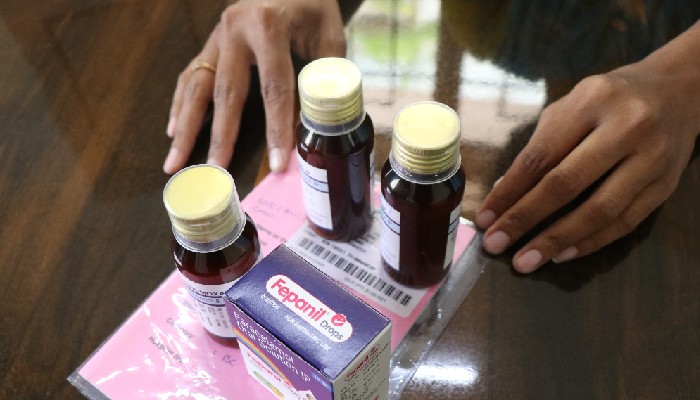
Working together towards a common goal
India has the third largest number of people living with HIV in the world, with 2.1 million. Despite free antiretroviral treatment being available and the tireless efforts of the Government authorities to ensure access to this treatment through ART Centres, uptake remains low as many people face difficulty in accessing clinics, even during normal times. The impact that the current pandemic has had for this already vulnerable population is still unknown.
RDT Hospital for Infectious Diseases’s strategy is aligned with the NACO National Strategic Plan on HIV/AIDS and STI, 2017-24 and 2030 Goals: Pave the way for an AIDS free India through attaining universal coverage of HIV prevention, treatment and continuum of services that are effective, inclusive, equitable and adapted to needs.
“I am proud of our quick response, but that was not enough to reach everyone, and this saddens me not only as a professional but above all as a human being, but at the time it keeps me motivated. We can not simply give up” says the doctor.
*These names and identifying details have been changed to protect the privacy of individuals.
Text and photo: Aina Valldaura

